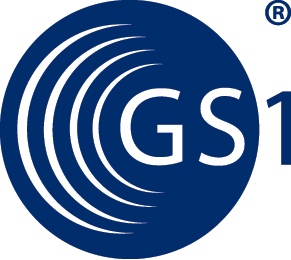|
|
|
| |
Function: |
| |
To start, identify and specify an interchange. |
|
| |
|
EAN |
* |
|
|
|
|
|
M |
|
|
See Part I chapter 5.2.7 and segment notes. |
|
|
|
|
|
M |
* |
|
|
|
|
|
M |
* |
|
|
|
|
|
M |
|
|
|
|
|
|
M |
|
|
|
|
|
Partner identification code qualifier |
|
|
R |
* |
|
|
|
|
Address for reverse routing |
|
|
O |
|
|
|
|
|
|
M |
|
|
|
|
|
|
M |
|
|
|
|
|
Partner identification code qualifier |
|
|
R |
* |
|
|
|
|
|
O |
|
|
|
|
|
|
M |
|
|
|
|
|
|
M |
|
|
|
|
|
|
M |
|
|
|
|
|
Interchange control reference |
|
|
M |
|
|
Unique reference identifying the interchange. Created by the interchange sender. |
|
|
|
|
RECIPIENT'S REFERENCE, PASSWORD |
|
|
C |
|
|
|
|
|
Recipient's reference/password |
|
|
M |
|
|
|
|
|
Recipient's reference/password qualifier |
|
|
O |
|
|
|
|
|
|
O |
|
|
Message identification if the interchange contains only one type of message. |
|
|
|
|
|
O |
|
|
|
|
|
|
O |
|
|
|
|
|
Communications agreement ID |
|
|
O |
* |
|
|
|
|
|
O |
|
| 1 |
|
= |
Interchange is a test |
|
|
Segment Notes: |
|
This segment is used to envelope the interchange, as well as to identify both, the party to whom the interchange is sent and the party who has sent the interchange. The principle of the UNB segment is the same as a physical envelope which covers one or more letters or documents, and which details, both the address where delivery is to take place and the address from where the envelope has come.
S001: The character encoding specified in basic code table of ISO/IEC 646 (7-bit coded character set for information interchange) shall be used for the interchange service string advice (if used) and up to and including the composite data element S001 'Syntax identifier' in the interchange header. The character repertoire used for the characters in an interchange shall be identified from the code value of data element 0001 in S001 'Syntax identifier' in the interchange header. The character repertoire identified does not apply to objects and/or encrypted data.
The default encoding technique for a particular repertoire shall be the encoding technique defined by its associated character set specification.
DE 0001: The recommended (default) character set for use in EANCOM® for international exchanges is character set A (UNOA). Should users wish to use character sets other than A, an agreement on which set to use should be reached on a bilateral basis before communications begin.
DE 0004, 0008, 0010, 0014, 0042 and 0046: Within EANCOM® the use of the Global Location Number (GLN) is recommended for the identification of the interchange sender and recipient.
DE 0008: Identification (e.g. a division) specified by the sender of the interchange, to be included if agreed, by the recipient in response interchanges, to facilitate internal routing.
DE 0042: Sub-level of sender internal identification, when further sub-level identification is required.
DE 0014: The address for routing, provided beforehand by the interchange recipient, is used by the interchange sender to inform the recipient of the internal address, within the latter's systems, to which the interchange should be routed. It is recommended that the GLN be used for this purpose.
DE 0007: Identification (e.g. a division) specified by the recipient of the interchange, to be included if agreed, by the sender in response interchanges, to facilitate internal routing.
DE 0046: Sub-level of recipient internal identification, when further sub-level identification is required.
DE S004: The date and time specified in this composite should be the date and time at which the interchange sender prepared the interchange. This date and time may not necessarily be the same as the date and time of contained messages.
DE 0020: The interchange control reference number is generated by the interchange sender and is used to identify uniquely each interchange. Should the interchange sender wish to re-use interchange control reference numbers, it is recommended that each number be preserved for at least a period of three months before being re-used. In order to guarantee uniqueness, the interchange control reference number should always be linked to the interchange sender's identification (DE 0004).
DE S005: The use of passwords must first be agreed bilaterally by the parties exchanging the interchange.
DE 0026: This data element is used to identify the application, on the interchange recipient's system, to which the interchange is directed. This data element may only be used if the interchange contains only one type of message, (e.g. only invoices). The reference used in this data element is assigned by the interchange sender.
DE 0031: This data element is used to indicate whether an acknowledgement to the interchange is required. The EANCOM® APERAK or CONTRL message should be used to provide acknowledgement of interchange receipt. In addition, the EANCOM® CONTRL message may be used to indicate when an interchange has been rejected due to syntax errors.
DE 0032: This data element is used to identify any underlying agreements which control the exchange of data. Within EANCOM® , the identity of such agreements must start with the letters 'EANCOM', the remaining characters within the data element being filled according to bilateral agreements.
UNB+UNOA:3+5412345678908:14+8798765432106:14+020102:1000+12345555+++++EANCOMREF 52' |
|
